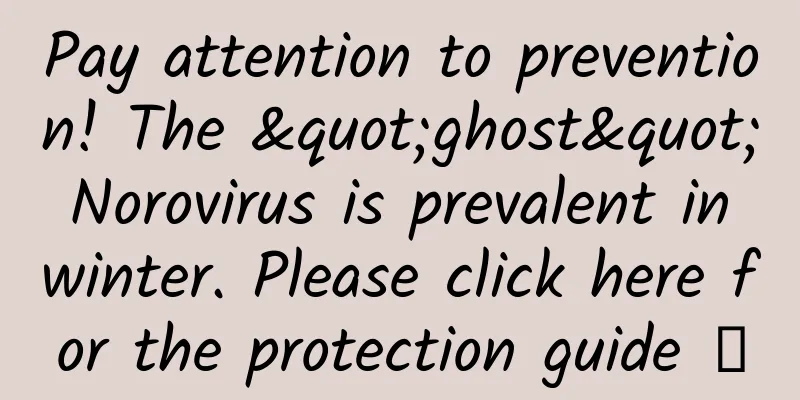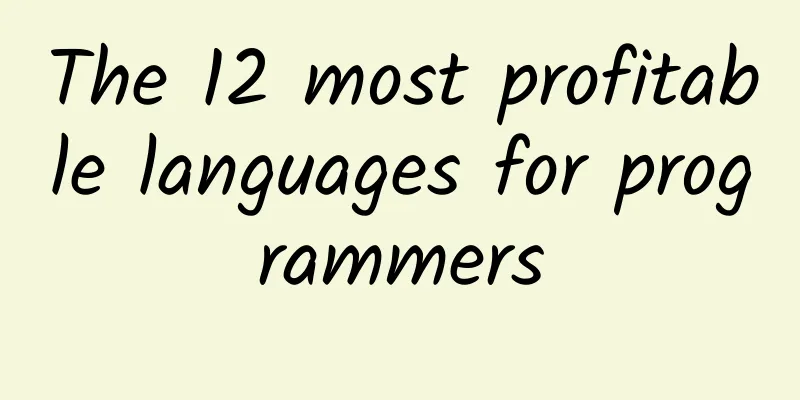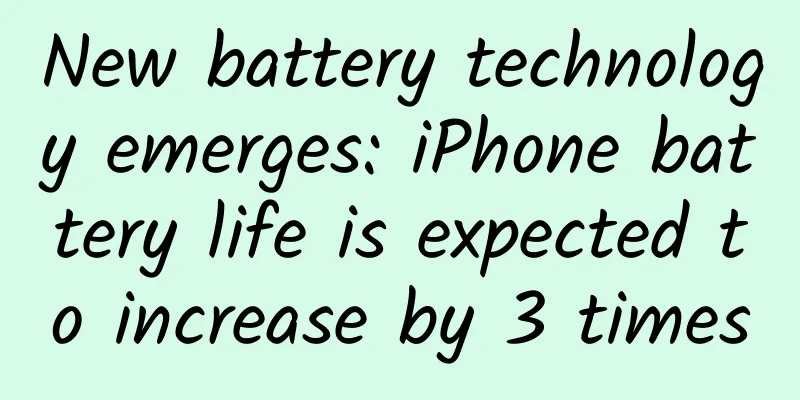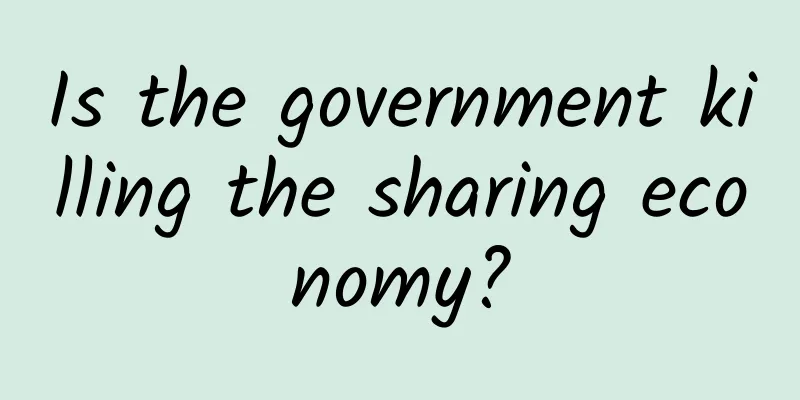Anxiety is not what you think
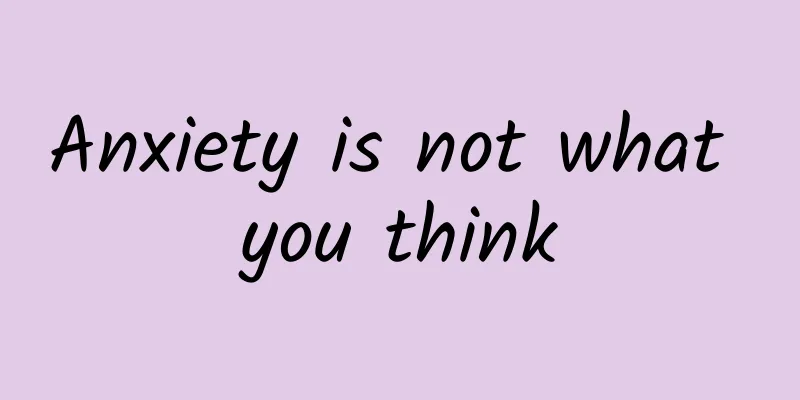
|
© Unsplash Leviathan Press: Danish philosopher Søren Kierkegaard used the word "angst" to refer to the buzzing fear that humans experience when thinking about death - "death" that may come at any time and can never be avoided. Chinese people usually translate this word as "fear", "existing for death is fear". Kierkegaard (1813-1855). © Wiki In a sense, all the anxiety we experience can be attributed to anxiety about death. Humans are unlucky animals: we are smart enough to know that death is inevitable, but we are not smart enough to do anything about it. Knowing that it is inevitable and knowing that there is nothing you can do about it, how can you not be anxious? © Unsplash Before we begin this article, let’s pretend we are a dog (if that offends you, you can also pretend we are an elephant, a sloth, a giraffe, or any other animal you like). As a dog, we will take actions for short-term goals. When we are hungry, we will walk around to find something to eat; when we are sleepy, we will find a comfortable place to sleep; when we see people, we may hide far away, because humans are quite scary animals. As dogs, we can only think about the present or the near future. Like other animals, we live in what human scientists call an "immediate reward environment," where actions have immediate, clear consequences, and anxiety about hunger, thirst, cold, or threats always motivates behavior. Our primitive ancestors also felt anxious, but that was to solve short-term and specific problems. When they were hungry, thirsty, tired, or had needs, they would always do something in a short period of time to relieve their anxiety. Therefore, primitive people's anxiety could always get timely feedback. But modern life has given a whole new definition to anxiety. How am I going to plan my career? Will I have enough money to pay off my credit card next month? Will I ever meet someone better after missing out on this person? Modern society is a "delayed return environment". Many of the things we do now are for the purpose of cashing in some kind of return in the future. Life in the student years is for finding a job you like in the future; work is for cashing in the rewards on payday; and the rewards are for supporting the long-term life in the future, such as buying a house, raising children, and treating illnesses and providing for the elderly. What is extremely inconsistent with this is that our brains have not evolved accordingly with the development of society. They still remain in a state of adapting to an environment of instant feedback, and therefore are prone to anxiety. © Unsplash The delayed feedback environment means constant uncertainty, and future threats bother us in the present, forming a kind of "dislocation". And persistent anxiety will also arise from the pressure caused by this dislocation. All this happens after humans realize that they need to plan for long-term events. Because we can't always know the outcome of things immediately. If there is an important exam next month, our bodies are likely to enter a stress response state starting now. The stress response is a mechanism that allows us to make effective decisions about threats in the short term. However, once we are in a state of stress response for a long time, our body will gradually feel weak and tired, our appetite will decrease, and our immune function will be impaired. Long-term, high-intensity work can make people exhausted, just like experiencing a serious illness. Compared to anxiety, fear may seem much simpler. If you can't fight, run away; if you are on fire, hide away. Fear is the basic skill for all animals to avoid threats, but anxiety seems to be unique to humans. In a sense, fear is the powerlessness of the present, anxiety is the worry about the uncertainty of the future, and depression is the frustration with the past. But from another perspective, modern people's anxiety is a kind of persistent fear, and depression is the result of persistent anxiety - by the way, the probability of the latter two occurring in one person at the same time is 60%-80%. Being born as a human being is a mess. But don't be too depressed. Evolutionary psychology believes that many of our emotional experiences may be "evolutionary advantages." Disgust with dirty things can keep us away from sources of disease, fear of darkness and the unknown can keep us away from potential dangers, and preference for healthy bodies can give us a higher chance of reproducing healthy offspring. Scientists wonder whether human anxiety, like fear, is an evolutionary product, for example, helping us detect potential threats? © Unsplash They designed an experiment: on the one hand, they assessed the subjects' anxiety levels by measuring their breathing and skin conductivity and combining it with the subjects' scores of their own mental states; on the other hand, the researchers arranged for the subjects to undergo magnetic resonance imaging scans. But the MRI was only half the trick. The researchers would secretly release a faint odor into the environment while the subjects were in the scan, and during the test they would casually ask the subjects if they smelled it. The results showed that the more anxious people are, the more likely they are to notice the faint smells in the environment, and they are particularly sensitive to those unpleasant smells. The results of the magnetic resonance imaging also showed that the subjects were more likely to have emotional fluctuations when faced with unpleasant smells - of course, all of this was expected by the researchers. (rd.springer.com/article/10.1007/s12078-011-9111-7) Bad smells usually mean bad things, such as germs, fire or even toxic gases, so researchers believe that anxiety can stimulate people's vigilance against potential threats, which is indeed an evolutionary advantage. So when you feel anxious, remember that this remarkable physiological response dates back to your ancestors who had a close encounter with lions - and it improves our odds of survival. © Unsplash * * * In the ancient environment of instant feedback, short-term anxiety as a warning in our lives was enough; but in a civilized society characterized by delayed feedback, long-term anxiety also becomes necessary. More than a hundred years ago, Harvard University psychologists Robert M. Yerkes and John Dillingham Dodson jointly proposed a model to describe the relationship between stress level and work efficiency, the Yerkes-Dodson Law. This law is based on the cruel way of shocking mice (they call the mice participating in the experiment "dancers"). The experimental mice need to be forced to choose to escape into a black box or a white box in a shrinking space. If they choose the black box, they will be shocked. In this way, we can observe whether there is a correlation between the intensity of the shock and the time it takes for the mice to form a habit (here, the time it takes to learn to avoid the black room). (www.nature.com/articles/077533a0) The results showed that as the intensity of the electric shock increased, the mice's work efficiency would also be enhanced (that is, the time it took to form a habit would be shortened) - but once the intensity of the electric shock exceeded a certain value, the impact on learning performance would stabilize. After that, the two conducted a series of more complex experiments and finally found that the linkage between work efficiency and stress would change depending on the different attributes of the task. In simple tasks, high stress means high motivation levels, and high motivation levels will promote improved work efficiency levels, but the efficiency level has a maximum value. In complex tasks, although enhanced motivation will improve work efficiency, excessive motivation (which means excessive pressure) will weaken efficiency levels. In a sense, the Yerkes-Dodson Law in complex task situations is a modern expression of the old saying "the first effort is great, the second is declining, and the third is exhaustion." Newlyweds' fear of marriage, students' stage fright before exams, and actors' stomach upset before going on stage are all caused by excessive anxiety. Yerkes-Dodson law curve Moderate anxiety itself is not a problem. In addition to the evolutionary advantages mentioned above, anxiety can also remind you to pay attention to your emotional abnormalities and proactively solve problems. Moreover, according to the Yerkes-Dodson Law, moderate anxiety can enhance efficiency and performance, and become a catalyst for action. However, once the stress is too high, anxiety becomes intense and persistent, and affects our life and work, it becomes a serious problem. In another study, participants were asked to write about things that made them feel depressed, anxious, happy, or peaceful (to induce the corresponding emotions) and then to feel their physical state and report it to the researchers. The results showed that those in the "anxiety group" reported significantly more physical discomfort symptoms than those in the other groups. (pubmed.ncbi.nlm.nih.gov/21219079/) This shows that anxiety can cause us to misjudge our physical condition. The physical discomfort we feel when we are anxious may not be real physical discomfort - sometimes it is just a false perception caused by anxiety. Based on this, researchers recommend that when diagnosing a patient's condition, doctors should try to understand the patient's emotional state at the time to ensure that the patient's self-report is accurate enough. But what is certain is that when you are anxious, your mental state is definitely not comfortable. If you feel uncomfortable all over, but can't tell where you are uncomfortable, you may be anxious again. © Unsplash Let's look at another experiment. Researchers at the University of Iowa asked participants in the "anxiety group" to write about a specific thing that made them anxious, artificially raising their anxiety levels. In contrast, the control group was asked to describe something neutral or negative. Next, the researchers gave all participants the same photo of a person sitting behind a desk with a book to their left (but on the right side of the photo relative to the participants). When asked about the position of the book in the photo, more than half of the control group answered that the book was on the left (which means they saw things from the perspective of the person in the photo), but only a quarter of the "anxiety group" did so. This result suggests that anxiety may make people stubborn in their own positions and find it more difficult to think about things from the perspective of others, and its effect is greater than negative emotions such as anger and disgust. (www.researchgate.net/publication/271220634_Anxious_and_Egocentric_How_Specific_Emotions_Influence_Perspective_Taking) But it's not that serious. There is no correct answer to which side the book is on, and anxiety does not always affect your social success rate. In social situations, focusing on yourself can sometimes be interpreted as paying attention to the occasion itself and the other person. However, the researchers, never one to give up, invented another experiment to explore the impact of anxiety on people's empathy. They told the two groups of participants a story: A freshman asked a senior whether he should take Professor XX's class, but the freshman didn't know that his senior had a feud with the professor. The senior replied: "Yes, that's right, Professor XX is a very good person." The participants were asked whether the freshman would interpret the senior's words as ironic. Since the freshmen didn't know that the seniors had a feud with the professor, there was no reason for them to interpret the words as irony. This is normal logic. However, people in the anxious group were more likely to think that the freshmen would interpret it this way. This further shows that anxiety does make people pay more attention to themselves and ignore the feelings of others. © Alma Haser/Stone/Getty Images But the real irony is that anxiety-provoking situations often require empathy to stay on track. Think of a first date dinner or a dinner party with distant relatives: the fear of possible embarrassment or even conflict makes people more anxious, which increases the possibility of embarrassment or conflict. Anxiety is like a chronic disease within the human species, making it difficult for us to understand the world from other people's perspectives. Because of this, excessive anxiety deepens our loneliness and even leads to depression, thus falling into a vicious cycle of emotions. But such a cognitive system actually points out the way for us to deal with anxiety - if anxiety does come from our excessive focus on ourselves, then detaching from ourselves and facing anxiety directly is precisely the best way to deal with anxiety. Professor Lisa Feldman Barrett, former president of the American Psychological Association, recorded an experiment on spider phobia in her book Emotions. The subjects were asked to face spiders, a terrible "source of anxiety," in different ways. The first method was cognitive reappraisal, which asked subjects to describe the spider in a way that would not make people feel scared: "The spider in front of me is small and it is safe. The second method is to distract the subjects from thinking about spiders and instead think about other things that have nothing to do with spiders. A third approach is to describe the feeling in detail, such as: "The spider in front of me is ugly, disgusting, scary, but also interesting." The study found that describing emotions directly was more effective than the first two popular methods of regulating emotions. It was most helpful in reducing people's anxiety in the moment, and this effect lasted for a week after the experiment ended. * * * According to statistics from the European Union in 2010, nearly 40% of the subjects admitted that they had been troubled by anxiety and depression. The National Institutes of Health of the United States published a paper in 2019 stating that the probability of American adults experiencing mental health problems in a year is 20.6%, but fortunately, nearly half of them have seen a psychiatrist. (www.zora.uzh.ch/id/eprint/49720/) (www.nimh.nih.gov/health/statistics/mental-illness) Last November, an online mental fitness brand founded by a team of psychology masters and doctoral students conducted a survey on the sources of stress for 4,926 participants in the mindfulness writing action camp. They found that people's anxiety mainly comes from: In the delayed-response environment of modern life, it’s hard not to experience stress, but most of us just endure it silently or avoid it. For many people, silently enduring is the decisiveness that an adult should have, while actively venting is a sign of hypocrisy or even cowardice, and is a "shameful" thing. This leads many people who suffer from emotional distress to believe that they have no distress - even if they do, it is difficult to speak up. However, this will only make you suffer more pain, which will not only be experienced on an emotional level, but will also affect your work efficiency, interpersonal relationships, quality of life and physical health. Holding back is definitely not a good idea. In 2008, famous emotional psychologist James Gross and his team conducted an experiment: they showed subjects a series of "nauseating" videos, such as car accident disaster scenes and the process of extracting cavities, and told the subjects in the experimental group to "keep your expression calm while watching, and don't let others see your emotional fluctuations." This is actually simulating a common way of comforting people in life: stay calm, be strong, hold on, and don't be sad. However, the staff found that compared with the control group (i.e. subjects who did not deliberately suppress their expressions), the amygdala and insula areas of the experimental group members were more active, and their skin current and cardiovascular responses were also enhanced. In other words, saying that you are fine will make your body more honest. Suppression will only make you more anxious. (www.ncbi.nlm.nih.gov/pmc/articles/PMC2483789/) Avoidance is also a very common coping method. When we feel uncomfortable, we instinctively want to leave the anxiety-inducing environment. For example, a person with social anxiety will unconsciously avoid socializing. By escaping, our current anxiety can indeed be temporarily relieved. But escaping also reinforces a subconscious cognition: this is a terrible situation that I am powerless to deal with. The more I escape, the more afraid I become, and the more I believe that I really can't do anything about it. This is called the "vicious cycle of anxiety" in clinical psychology. For people suffering from anxiety, seeking help is the hardest step. This involves two difficulties: admitting that you need help and finding professional and reliable resources. According to the National Institutes of Health, it takes an average of 11 years for a person to experience emotional distress and eventually seek professional help. We don't know what this number will be in China. According to statistics from The Lancet in China in 2019, the proportion of people with anxiety disorders in China is about 7%. However, among those screened for emotional disorders, only 9.5% actively sought help, and 0.5% received adequate professional treatment. This is a heart-breakingly low statistic. Our traditional culture always tells us to "bear humiliation and bear heavy burdens", but rarely tells us how to actively deal with emotional distress. You know, anxiety is not only for the weak. Anxiety and depression are as common as anger and sadness, and as common as a mental cold. Acknowledging that you are having difficulties and consciously seeking professional and effective help is a turning point in changing your life. * * * Of all the anxiety disorders, generalized anxiety disorder is the most common. Generalized anxiety disorder is considered a "baseline" anxiety disorder. It can also be a precursor to other mental disorders, such as depression. Its daily manifestations include: Getting tired easily Muscle tightness Fidgeting or nervous Difficulty concentrating or mind going blank Sleep disturbance irritability If a person has been in the above state for most of the past six months and it has affected normal life such as work and social life, he or she may need to consider seeking professional help. Fortunately, clinical psychologists have done extensive research on the psychological mechanisms of anxiety. Currently, there are many evidence-based therapies that can effectively relieve anxiety, such as cognitive behavioral therapy (CBT), acceptance and commitment therapy (ACT), and transdiagnostic treatment programs for mood disorders (UP). Evidence-based psychotherapy does not delve into your past experiences, but directly deals with the things that make you anxious at the moment. Anxiety disorder therapists are more like "psychological coaches". By designing a systematic action plan, they lead you to learn skills to deal with anxiety, starting with simulation exercises. After gradually mastering them, you can deal with your emotions freely in life. The core working principle of these therapies is to gradually improve the "tolerance" to the experience of anxious emotions, thereby breaking the vicious cycle of "avoidance-reinforcement". In terms of improving the effect of emotional distress, evidence-based psychotherapy is almost comparable to medication. Compared with drug therapy, psychotherapy is applicable to a wider range of people. It can be used as a treatment for mild anxiety to prevent further aggravation, and can also be used in conjunction with medication during the recovery period of drug treatment for severe anxiety. Psychological therapies can also prevent relapses: they are a skill that can be learned and used at any time. Compared with medication, cognitive behavioral therapy and mindfulness-based cognitive therapy training significantly reduce the likelihood of relapse of psychological distress. Currently, the new version of Guangdong Province’s “Guangdong Province Basic Medical Insurance, Work-related Injury Insurance and Maternity Insurance Diagnosis and Treatment Item Catalogue” includes psychological therapy tools such as behavioral therapy and mindfulness training therapy. I hope you can “plant” an emotional tree of your own, easily master those emotions that are often ignored by yourself, and understand yourself better. By Vicenzi Proofreading/Rabbit's Light Footsteps This article is based on the Creative Commons License (BY-NC) and is published by Vicenzi on Leviathan The article only reflects the author's views and does not necessarily represent the position of Leviathan |
<<: Be careful when eating seafood! There is no cure, you may also be poisoned by this seafood
Recommend
New discoveries! These 4 new species are revealed for the first time!
Rana wuyiensis, Ephemeroptera spp. Wuyishan Maoni...
Operators’ worries: 4G die-hards unwilling to upgrade and “move”
Are you a 4G die-hard who is unwilling to move? I...
How to make your landing page more effective?
A landing page is also called a landing page. It ...
How is the call quality of 400 number?
After applying for 400 telephone numbers , many c...
It's not that bagels are too expensive, but steamed buns are more cost-effective? What's the difference between the two?
Author: Fluent Not long ago, a short video went v...
Practical application of user experience optimization on special effects side - Package size
1 The size of special effects packages for TikTo...
300 fission cases: How to build traffic acquisition thinking?
In the WeChat ecosystem , whether it is micro-bus...
How to invest in Douyin Qianchuan? What are the advertising techniques of Douyin Qianchuan?
How to invest in Douyin Qianchuan? What are the a...
What are the commonly used terms in SEM? Summary of Common SEM Terms
Key indicators and terms ◆ Ranking and creativity...
Are humans the first civilization in the universe? Four scientific theories about aliens tell you the truth
This topic has been popular on the Internet for a...
With big brands so powerful, what is the future for small mobile phone manufacturers?
The release of new mobile phones in the first hal...
“Meituan Takeout” product analysis report!
Take-out has become a must-have for urbanites, sa...
After interviewing more than 50 UI designers, I summarized these job hunting skills!
Some time ago, the company was recruiting UI desi...
Summary of 12 methods of traffic promotion
The purpose of drainage is just to increase fans....
Short video account restricted? How to solve it?
I don’t know if you have ever had the headache of...

